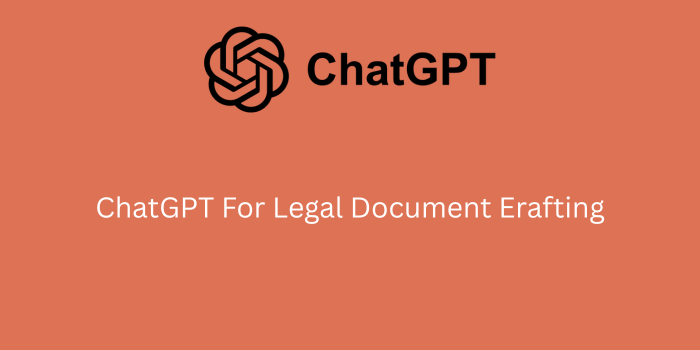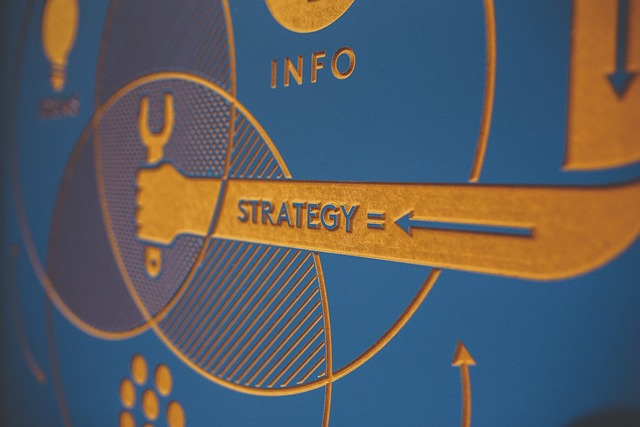Legal document drafting is a time-consuming and meticulous task that requires attention to detail and precise language. For law firms and legal departments, this process often involves drafting contracts, agreements, briefs, and other legal documents.
However, with the rapid advancement of artificial intelligence (AI), tools like ChatGPT are changing the way legal professionals approach document creation. In this blog post, we’ll explore how ChatGPT can revolutionize legal document drafting, offering law firms an efficient, accurate, and cost-effective solution for generating legal documents.
What is ChatGPT?
ChatGPT is a sophisticated language model developed by OpenAI. It uses deep learning algorithms to understand and generate human-like text. ChatGPT is capable of answering questions, holding conversations, and assisting in tasks that require text generation. Due to its natural language processing (NLP) capabilities, it has found applications in various fields, including content creation, customer service, and, most importantly, legal document drafting.
How Can ChatGPT Be Used for Legal Document Drafting?
Legal document drafting involves creating contracts, legal agreements, wills, deeds, and other official documents that require accuracy and adherence to the law. ChatGPT can assist legal professionals in various ways:
- Contract Drafting: ChatGPT can help in generating templates for standard contracts, such as employment agreements, non-disclosure agreements (NDAs), and more. By inputting basic details, ChatGPT can create customized contracts tailored to specific legal requirements.
- Legal Research: When drafting a legal document, it’s important to refer to applicable laws, precedents, and regulations. ChatGPT can assist by summarizing complex legal concepts and providing relevant information from vast databases of legal texts.
- Clause Drafting: Many legal documents contain standard clauses such as confidentiality, dispute resolution, and indemnity clauses. ChatGPT can generate these clauses automatically, ensuring consistency and accuracy in every document.
- Proofreading and Editing: ChatGPT can proofread legal documents to identify any potential errors or inconsistencies, suggesting improvements to make the text clearer and more precise.
- Automating Routine Tasks: ChatGPT can be programmed to automate routine tasks, such as generating initial drafts of agreements or standard letters, allowing lawyers to focus on more complex aspects of legal practice.
Benefits of Using ChatGPT for Legal Document Drafting
Integrating ChatGPT into the legal document drafting process offers several benefits for law firms and legal professionals. These include:
- Efficiency: ChatGPT can quickly generate drafts of legal documents, reducing the time it takes to prepare a document from scratch. This allows legal professionals to handle more clients and cases in less time.
- Cost-Effectiveness: By automating repetitive and time-consuming tasks, law firms can reduce labor costs. Additionally, AI-powered tools like ChatGPT can be a more affordable option for smaller firms or independent lawyers.
- Consistency: ChatGPT can produce standardized documents that follow the same structure and legal terminology, ensuring uniformity across all documents.
- Accuracy: AI tools like ChatGPT can help identify legal inconsistencies, potential risks, and errors in documents. This reduces the chances of mistakes that could have legal repercussions.
- Customization: ChatGPT can tailor documents to specific client needs, adjusting the language, terms, and clauses based on the requirements provided.
- 24/7 Availability: Unlike human assistants, ChatGPT can work around the clock, making it easier for law firms to respond to urgent client needs anytime.
How Law Firms Can Implement ChatGPT in Legal Document Drafting
For law firms looking to incorporate ChatGPT into their document drafting workflow, the process can be straightforward.
Here are some steps to consider:
- Choose the Right AI Tool: Select an AI tool like ChatGPT that meets your needs. OpenAI offers several API options that allow law firms to integrate ChatGPT into their practice management systems or document automation software.
- Train the AI: While ChatGPT is pre-trained on vast amounts of text data, it’s essential to fine-tune the model on legal-specific content. This ensures that the AI understands legal language, terminology, and nuances.
- Integrate with Document Management Systems: ChatGPT can be integrated with document management and case management systems to streamline workflows. This integration can allow AI-generated drafts to be saved directly into the firm’s database.
- Monitor and Review: Although ChatGPT can generate accurate drafts, human lawyers should still review and verify the content before finalizing any document. It’s essential to ensure that the document complies with all legal regulations and client specifications.
- Leverage AI for Ongoing Learning: ChatGPT can be used to analyze feedback and continuously improve the quality of the documents it generates. This creates a dynamic learning environment that benefits both the AI tool and the law firm.
Real-World Use Cases of ChatGPT in Legal Document Drafting
Several law firms and legal departments have already adopted AI-driven solutions like ChatGPT for document drafting. Here are a few examples:
- Contract Generation: Firms are using ChatGPT to automate the generation of basic contracts such as leases, NDAs, and partnership agreements. By inputting client-specific details, the AI generates documents that meet legal standards and can be quickly reviewed and signed.
- Wills and Trusts: Legal professionals in estate planning are utilizing ChatGPT to generate wills and trust documents. The AI can be programmed to ask relevant questions to ensure that the resulting documents are tailored to each client’s wishes.
- Litigation Support: ChatGPT is also used in litigation for drafting motions, complaints, and other court filings. AI-powered drafting tools help lawyers streamline their preparation for legal proceedings, saving valuable time.
Challenges of Using ChatGPT in Legal Document Drafting
While ChatGPT offers many advantages, there are some challenges to consider:
- Data Privacy and Confidentiality: Legal documents often contain sensitive client information. Law firms must ensure that AI tools like ChatGPT comply with strict privacy regulations and maintain confidentiality.
- Quality Control: While AI can generate legal documents, human oversight is still necessary to ensure that the documents are legally sound and accurate.
- Legal Jurisdictions: Laws vary from jurisdiction to jurisdiction, and ChatGPT may need to be customized for specific legal systems or regions to ensure compliance.
Conclusion
ChatGPT is transforming the way legal documents are drafted, offering law firms and legal professionals an efficient, cost-effective solution for creating accurate and customized documents. By integrating AI into their workflows, law firms can increase productivity, reduce costs, and provide better services to clients. While challenges like data privacy and quality control remain, the potential benefits of using ChatGPT for legal document drafting are significant. As AI technology continues to evolve, we can expect even more advanced tools that will further revolutionize the legal industry.






